Home Remedies For Chigger Bites: 13 Soothing Natural Treatments
Soothe those angry bumps with a few simple ingredients from your pantry.
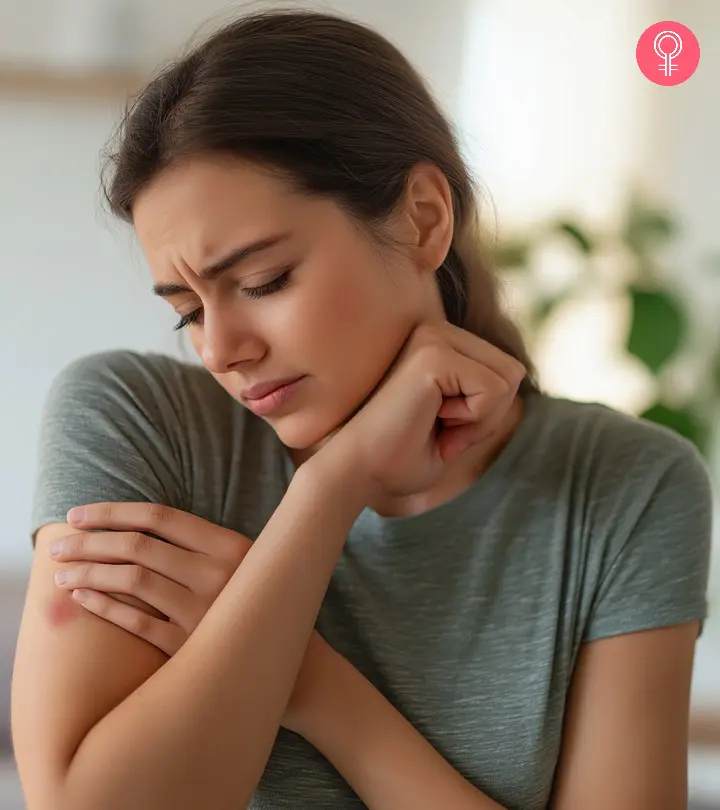
Image: Midjourney/ StyleCraze Design Team
If you have been looking for some home remedies for chigger bites, you have certainly come to the right place. Chiggers are pesky parasites that are invisible to the naked eye. Red in color, chiggers quickly become yellow once they start feeding on bodily fluids. What’s more, they are so small that you don’t see them until the first sign of their bite appears in a day or so. Next time you go for a nice trek or camping trip, be careful of your surroundings. In this article, we look at the symptoms of chigger bites and a few natural ingredients at home that can deal with them easily. Scroll down to know more!
In This Article
What Are Chiggers?
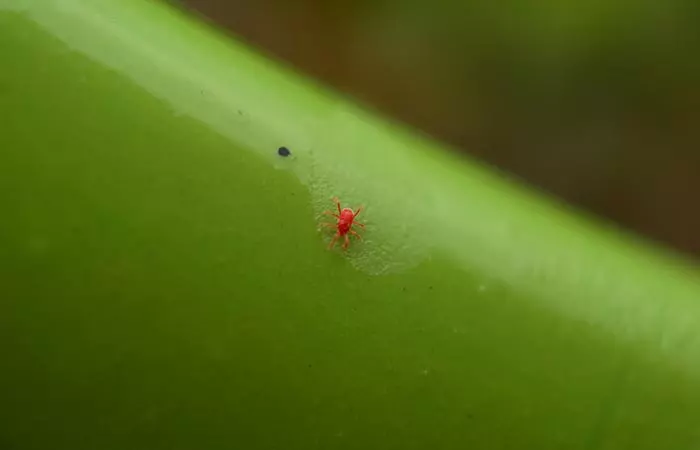
Chiggers, also known as red bugs and larval mites, are tiny larvae belonging to the arachnid family. Although these larvae are extremely small, their bites cause intense itching.
Chiggers are commonly found in grassy or wooded areas. They love warm, humid places and are most active in late spring and summer. Knowing where they live and how they grow can help you avoid getting bitten by them during outdoor activities.
Chiggers can quickly get on your skin from blades of grass and vegetation if you happen to brush up against their habitat. They are so tiny that you won’t even notice their presence until your skin begins to itch. They can also enter your home surreptitiously. However, these larvae become inactive at temperatures below 16°C and die when the temperatures fall below 6°C.
 Quick Tip
Quick TipKey Takeaways
- Chiggers or red bugs are tiny bugs that suck on human body fluids and may cause red bumps on the skin or itching.
- While chigger bites are not harmful, the intense itching they cause may lead to bleeding and serious infections if scratched aggressively.
- Some natural treatments may help soothe these bites like a baking soda or Epsom salt bath, Vicks Vaporub, rubbing alcohol, and apple cider vinegar.
- Always wash yourself and your clothes when coming back from outdoor activities to avoid chigger bites. Also, calamine lotion to soothe itching.
How Do Chiggers Bite Humans?
Once chiggers attach themselves to the human body with the help of their claws, they attach their mouth to the skin and inject their saliva. The presence of an enzyme in the saliva of chiggers breaks the human cells into liquid form. The human body responds to this by hardening the skin cells around the saliva, thus creating a tube via which the chiggers suck on the body fluids. Chiggers usually feed on a host body for 1 to 12 days if they are not scratched off (1). However, when it comes to human bodies, they are easily dislodged by scratching and rarely stay attached for more than 48 hours (2).
Other than the persistent itchy sensation, you may notice other symptoms after a chigger bite. Some of them are listed below.
Signs And Symptoms Of Chigger Bites
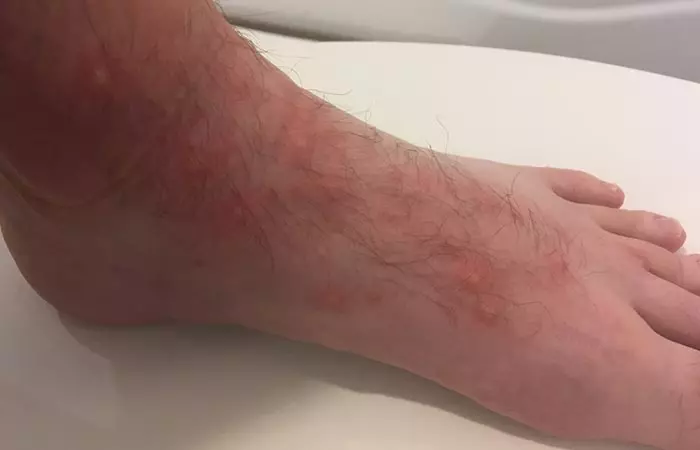
The common signs and symptoms that accompany chigger bites include (2):
- Reddish bumps on the skin with a bright red dot in the center
- Bumps that occur in groups and grow for up to a week
- Bumps that usually occur around the armpits, crotch, ankles, waist, or behind your knees
Though there are hardly any serious health consequences of chigger bites, one of the major problems is the intense itchiness that follows. It may sometimes last for as long as 2 weeks (2). In fact, you may even start to bleed as a result of itching constantly. This can, in turn, cause skin infections, worsening the appearance of the bites. Thus, it is best to treat the problem. We have listed some of the best home remedies for chigger bites. Take a look.
How To Treat Chigger Bites Naturally
- Baking Soda
- Vicks Vapor Rub
- Bleach Bath
- Essential Oils
- Epsom Salt
- Rubbing Alcohol
- Apple Cider Vinegar
- Nail Polish Remover
- Hydrogen Peroxide
- Oatmeal Bath
- Coconut Oil
- Toothpaste
- Ice Pack
Home Remedies To Treat Chigger Bites
Here are some of the best home remedies for chigger bites. Before you explore them, it is important to note that like all natural remedies, the ones mentioned below may cause allergic reactions or skin irritation. Therefore, always patch-test them on a small area of your skin before widespread use. If you are allergic to any of the ingredients listed below, avoid using them.
1. Baking Soda
You Will Need
- 1 cup of baking soda
- Bathwater
What You Have To Do
- Add a cup of baking soda to your bathwater and allow it to dissolve.
- Soak in the bath for 15 to 20 minutes.
- Alternatively, you can also make a thick paste of baking soda and water and apply it to the chigger bites.
How Often You Should Do This
You must do this once a day for 2 to 3 days or until the itching subsides.
Why This Works
Baking soda is one of the most widely used home remedies for chigger bites and the inflammation linked to it. This may be due to its anti-inflammatory nature (3). It may help soothe the skin by reducing any redness and swelling linked to chigger bites. Since it is also alkaline in nature, it may help neutralize the acidic components of the saliva left behind by the chiggers (4).. This, in turn, may reduce the itchiness caused by chigger bites to a great extent. Baking soda is also antimicrobial and may help kill any infection-causing bacteria, preventing infections that could arise from scratching the bites (5).
2. Vicks Vapor Rub
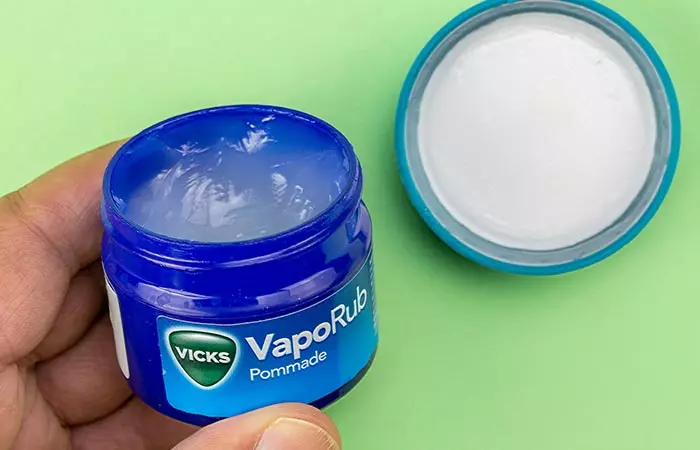
You Will Need
- Vicks Vapor Rub (as required)
- Salt (as required)
What You Have To Do
- Add a pinch of salt to a little Vicks Vapor Rub and mix well.
- Apply this mixture to the chigger bites.
How Often You Should Do This
You can do this once every night for 3 to 4 nights.
Why This Works
Vicks Vapor Rub contains menthol, which exhibits strong anti-inflammatory properties that can help reduce the swelling, inflammation, redness, and itchiness caused by chigger bites (6). Menthol also has antimicrobial properties (7). This suggests that it may help prevent secondary infections if the bite is scratched.
3. Bleach Bath
You Will Need
- 1/4 cup of standard household bleach
- Bathwater
What You Have To Do
- Add one-fourth cup of household bleach to a tub filled with warm water.
- Soak in the water for 10 to 15 minutes.
- You can also mix equal parts of bleach and water and apply it directly to the chigger bites.
How Often You Should Do This
You may take a bleach bath immediately after your encounter with chiggers.
Why This Works
The chlorine in bleach has anti-inflammatory properties that may help soothe the skin and reduce redness and swelling (8). A bleach bath also thoroughly cleans the skin and may kill any leftover chiggers on your body, reducing itching to a great extent. A small amount of bleach diluted in water also acts as a mild antiseptic and disinfectant, killing bacteria on the skin’s surface. This may help prevent any secondary infections (8).
4. Essential Oils
Note: Essential oils may cause allergic reactions in some individuals. So, always do a patch test before using them. Also, the oils are highly potent. Always dilute them with carrier oils or water before use to avoid burns and irritation.
Please dilute the below listed essential oils with coconut oil before applying to the skin directly.
a. Tea Tree Oil
You Will Need
- Tea tree oil (as required)
- Cotton pads (optional)
What You Have To Do
- Apply a drop of tea tree oil to the affected areas.
- You can either apply it directly or with the help of a cotton pad.
How Often You Should Do This
You must do this 2 to 3 times daily until you notice an improvement.
Why This Works
Tea tree oil is widely used to treat acne and insect bites due to its powerful anti-inflammatory properties (9). Due to this, it may also be used to reduce the redness and swelling linked to chigger bites. It also possesses antimicrobial properties that can prevent further infection of the affected area (10).
b. Lavender Oil
You Will Need
- Lavender oil (as required)
- Cotton pads (optional)
What You Have To Do
- Apply a drop of lavender essential oil to the affected area either directly or with a cotton pad.
- Leave it on and allow it to dry.
How Often You Should Do This
You may do this 2 to 3 times daily until the itching subsides.
Why This Works
Lavender oil has anti-inflammatory and analgesic properties that may help reduce itchiness, pain, and inflammation in the affected area (11).
c. Thyme Oil
You Will Need
- Thyme oil (as required)
- Cotton pads (optional)
What You Have To Do
- Apply a few drops of thyme essential oil to the affected area either directly or with a cotton pad.
- Leave it on and let it dry.
How Often You Should Do This
You may do this twice to thrice daily until the itching subsides.
Why This Works
Thyme essential oil is known for its anti-inflammatory, antifungal, and antibacterial properties. These properties are attributed to the presence of beneficial compounds such as thymol and P-cymene in it (12). These properties may help reduce the itching and swelling in the affected area and prevent other infections.
Ann, a blogger, shares her own home remedy for chigger bites which includes a simple salt and butter mix. She claims that although the remedy was helpful, it got messy so she decided to use clove essential oil to numb the itching. “As an added bonus, as some of the bigger bites began to blister and ooze in later days, the clove essential oil provided a cleansing effect to keep them from getting infected (i),” she added.
5. Epsom Salt
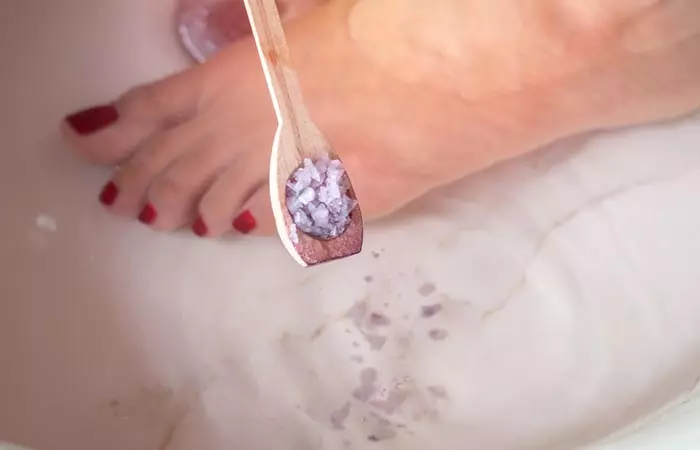
You Will Need
- 1 cup of Epsom salt
- Bathwater
What You Have To Do
- Add a cup of Epsom salt to your bath water and wait for it to dissolve completely.
- Soak in it for 15 to 20 minutes.
How Often You Should Do This
You must do this once daily, for a week.
Why This Works
Epsom salt contains magnesium, which has anti-inflammatory properties that help reduce inflammation, itchiness, and swelling caused by chigger bites (13).
6. Rubbing Alcohol
You Will Need
- 2-3 tablespoons of rubbing alcohol
- Cotton pads
What You Have To Do
- Take two to three tablespoons of rubbing alcohol in a small bowl.
- Soak a cotton ball in it and apply it to the affected areas.
- Leave it on.
How Often You Should Do This
You can repeat this procedure as required.
Why This Works
Rubbing alcohol possesses disinfectant properties (14). This may help cleanse the affected area and protect it from further infection. It may also help in soothing the area by relieving the itchy sensation (15).
Caution
Individuals with sensitive skin should not use this remedy as it may cause peeling and further irritation of the skin.
7. Apple Cider Vinegar
You Will Need
- 2-3 tablespoons of apple cider vinegar
- Cotton pads/balls
What You Have To Do
- Take a few tablespoons of apple cider vinegar in a small bowl.
- Soak a cotton pad in it and apply it to the chigger bites.
- Allow it to dry.
How Often You Should Do This
Do this 1 to 2 times daily for a week.
Why This Works
Apple cider vinegar may help neutralize the affected area due to its acidic nature, thereby relieving itchiness. Its anti-inflammatory properties may help reduce inflammation, swelling, and pain. And, its antimicrobial properties may protect your skin from further infection (16), (17).
8. Nail Polish Remover
You Will Need
- 1-2 tablespoons of acetone
- Cotton pads
What You Have To Do
- Take a little nail polish remover (acetone) on a cotton pad.
- Apply this to the affected areas.
How Often You Should Do This
Do this 1 to 2 times daily, for 2 to 4 days.
Why This Works
Nail polish remover or acetone is a cleaning agent (18). So, using it on the chigger bites may help dislodge any attached chiggers and prevent further itching. This remedy is also popularly used for dislodging ticks.
Caution
Those with sensitive skin should not use acetone on their skin as it may lead to other complications.
9. Hydrogen Peroxide
You Will Need
- 2 tablespoons of 3% hydrogen peroxide
- 2 tablespoons of water
- Cotton pads
What You Have To Do
- Mix two tablespoons each of 3% hydrogen peroxide and water.
- Using a cotton pad, apply this solution to the affected areas.
- Allow it to dry.
How Often You Should Do This
Do this 1 to 2 times daily for a few days.
Why This Works
The antiseptic properties of hydrogen peroxide may help in destroying the chigger enzymes that are responsible for making your skin itchy and inflamed (19). It may also help soothe and cool the affected areas with its anti-inflammatory properties (20).
10. Oatmeal Bath
You Will Need
- 1 cup of ground oatmeal
- Bathwater
What You Have To Do
- Add a cup of ground oatmeal to your bathwater and soak in it for 15 to 20 minutes.
- Alternatively, you can also tie some oatmeal in a muslin cloth and replace your loofah with it.
How Often You Should Do This
You must do this once daily for a week.
Why This Works
Oatmeal plays an important role in dermatology and is used for treating various inflammatory skin conditions like acne, pruritusi An unpleasant, irritating sensation, often caused by dry skin, that makes you want to scratch. , and atopic dermatitisi A long-term allergic, inflammatory skin condition that causes itchy, red, swollen, and cracked skin. . This is mainly due to its powerful anti-inflammatory and antioxidant properties (21), (22). These properties may also help soothe the inflammation and redness linked to chigger bites.
11. Coconut Oil
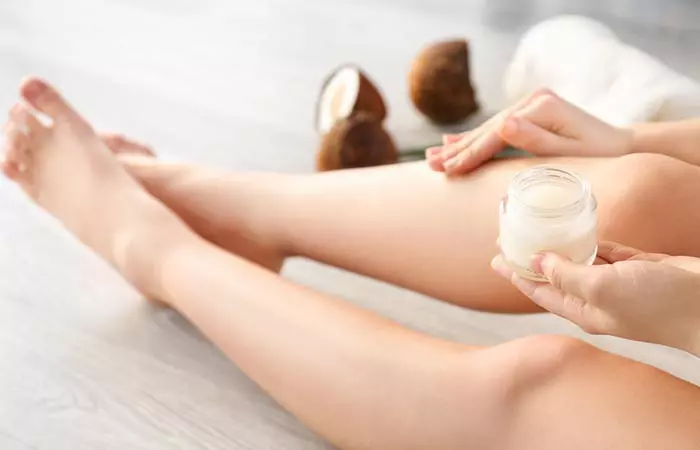
You Will Need
1-2 tablespoons of coconut oil
What You Have To Do
- Take a little coconut oil and apply it to the affected areas.
- Leave it on and allow your skin to absorb the oil.
How Often You Should Do This
You must do this 1 to 2 times daily for a few days.
Why This Works
Coconut oil is made up of medium-chain fatty acids like lauric acid and capric acid. These fatty acids possess strong anti-inflammatory and analgesic properties that may help reduce the itchiness and inflammation associated with chigger bites (23). Additionally, coconut oil can also help in keeping your skin well-moisturized and nourished (24).
12. Toothpaste
You Will Need
Toothpaste (as required)
What You Have To Do
- Dab a little toothpaste gently on the chigger bites.
- Allow it to dry, after which you can wash it off with water.
How Often You Should Do This
You must do this 1 to 2 times daily for a couple of days.
Why This Works
This is another one of those classic home remedies for chigger bites that harnesses the benefits of menthol. Toothpaste contains menthol, known to have anti-inflammatory and antimicrobial properties. This may help relieve the itching, swelling, inflammation, and redness linked to chigger bites. The antimicrobial properties of menthol may also prevent secondary infections (6), (7).
13. Ice Pack
You Will Need
An ice pack
What You Have To Do
- Take an ice pack and apply it to the affected areas.
- Leave it on for 10 to 15 minutes.
- Repeat 2 to 3 times.
How Often You Should Do This
You must do this at least twice daily for a few days.
Why This Works
When you use an ice pack, the localized cooling constricts blood vessels. This reduces blood flow to the area and produces a numbing effect that may help reduce inflammation and offer pain relief (25).
 Quick Tip
Quick TipThe effect of the remedies mentioned above can be observed almost instantly. In addition to these home remedies for chigger bites, there are many herbal treatments. Anecdotal evidence suggests that aloe vera, chamomile, witch hazel, honey, lemon juice, garlic, calendula, onion, turmeric, camphor, peppermint oil, rosemary oil, mustard oil, clove oil, and neem oil may help reduce inflammation and pain associated with chigger bites. However, limited data is available to prove these claims.
Here are a few tips you can follow to avoid such experiences in the future.
- If these remedies do not solve your problem or the condition worsens to an infection, consider using over-the-counter anti-itch creams or ointments, like hydrocortisone, that may help reduce itching and swelling.
- You can also use calamine lotion to soothe the skin and for relief.
- If the itching is severe, taking oral antihistamines can be helpful.
- In cases where the bites have become infected, a doctor may prescribe antibiotics to treat the infection.
- You should seek immediate medical advice in case of severe allergic symptoms like difficulty breathing, pus, or fever.
- If you have a weakened immune system, diabetes, or any other medical condition that may affect healing, always seek professional advice instead of relying on home remedies.
Here are a few tips you can follow to avoid such experiences in the future.
Prevention Tips
- Be careful and steer clear of brushing against vegetation when you are in wooded areas.
- Wear long-sleeved shirts and full pants tucked in socks while indulging in any outdoor activities.
- Shower after you are back from any outdoor activity like trekking.
- Wash your clothes in warm water as soon as you return from a trek or hike.
- Scrub the affected area with soap and water to remove the mites. Applying calamine lotion can help in soothing the burning sensation and itching. You can also take oral antihistaminesi A class of drugs that helps relieve symptoms of allergies, treats cold and flu symptoms, and motion sickness. topical creams, painkillers, or topical steroids if recommended by your dermatologist.
- You can also spray permethrin sprays on your clothes 1 or 2 days in advance to allow them to dry before wearing them in the wild.
- Apply insect repellents with DEET or picaridin on exposed areas. These repellents help keep chiggers away and reduce the chances of getting bitten.
Infographic: Possible Complications Of Chigger Bites
Most chigger bites are harmless and resolve within a few weeks with proper care. However, in some cases, complications related to the bites may arise.
Check out the infographic to learn about the possible complications of chigger bites and what signs to look out for. Illustration: StyleCraze Design Team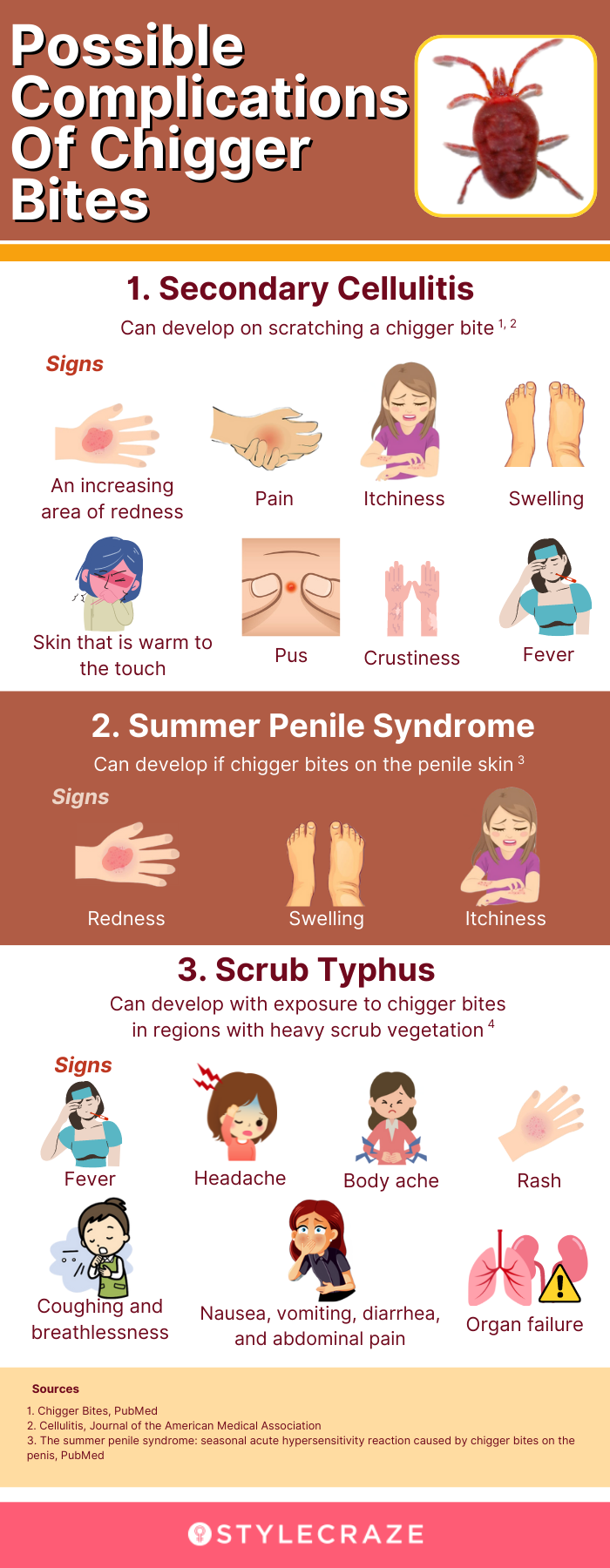
Chiggers, or red bugs, as they are commonly called, are tiny larvae belonging to the arachnid family. Though these bugs are so small that they are not noticeable on the surface of the skin, their bites can cause intense itching and discomfort. Other symptoms of chigger bites include reddish bumps that have a bright red dot in their center and appear to keep growing for a week or so. The home remedies for chigger bites discussed here can help you get rid of the chiggers and soothe the itch and inflammation.
Frequently Asked Questions
Can chigger bites lead to serious health issues?
Chigger bites usually do not cause serious health issues. They can be very itchy and uncomfortable, but most bites heal on their own. However, excessive scratching can lead to infections, which might need treatment. In rare cases, chiggers can carry diseases, but this is uncommon.
What happens if you scratch chigger bites?
Although chiggers don’t carry any diseases, scratching could cause skin irritation, inflammation, or infection.
How long do chigger bites last?
Chigger bites usually last anywhere from 2 to 5 days. The bite usually develops a welt within 10 to 16 hours and may continue to itch for a few days.
Where do chiggers live?
Chiggers usually live in moist and grassy areas like fields, forests, or even your lawn. However, they become inactive or die if the temperature falls below 16°C.
Should I pop my chigger bites?
No, popping chigger bites may lead to infection and delay healing. Instead, try using some home remedies for bug bites to reduce the itching.
Do chiggers lay eggs in your skin?
No, chiggers do not burrow into the skin or lay eggs in it.
Can chiggers spread in bed?
No, chiggers cannot spread in bed. They need a warm body and cannot survive in a bed.
Does showering get rid of chiggers?
Yes, showering can help you get rid of any chiggers that are on your skin.
Does Listerine help chigger bites?
Yes, applying Listerine on chigger bites may help relieve the itching.
Illustration: Home Remedies For Chigger Bites & Prevention Tips
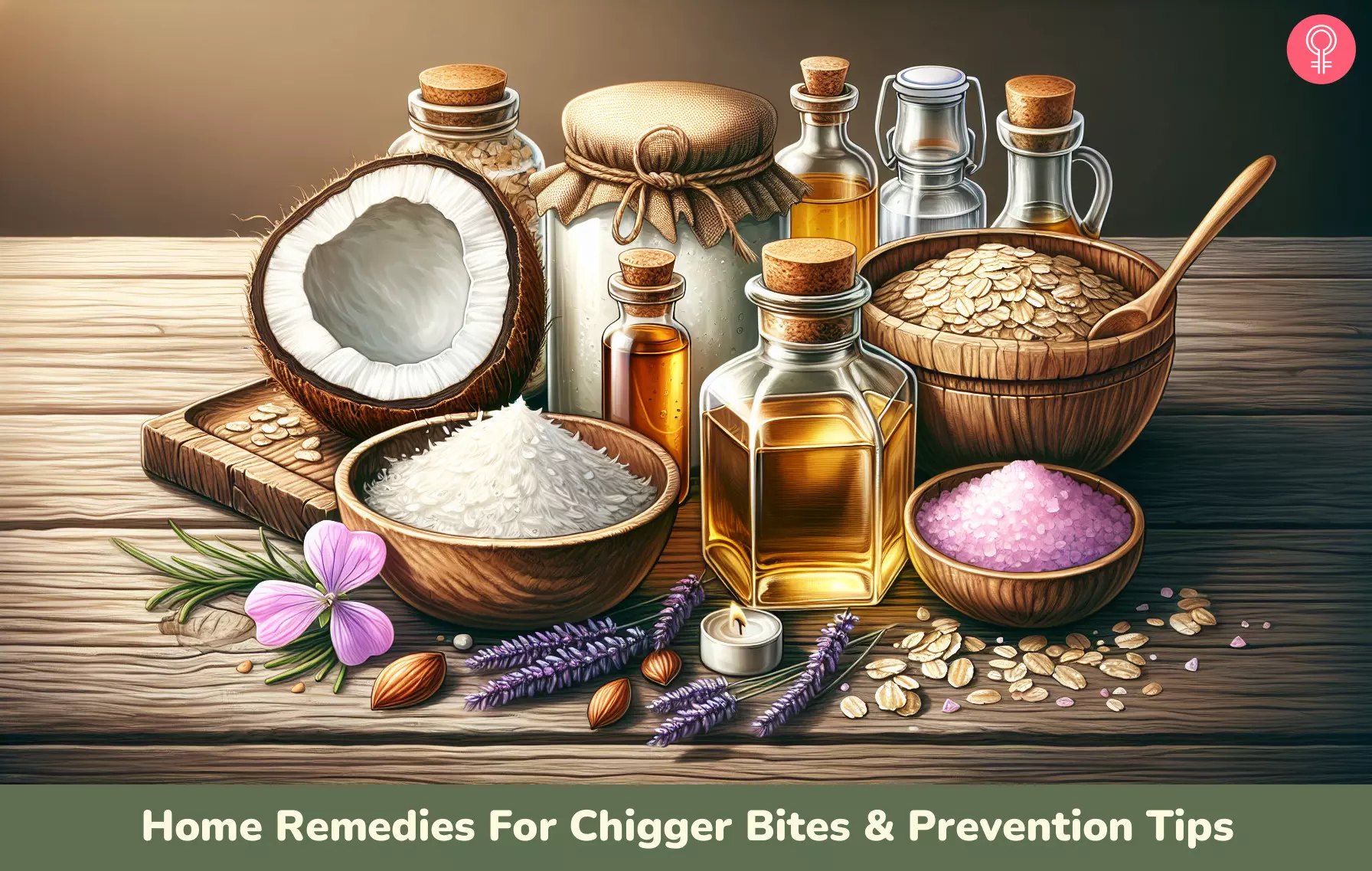
Image: Dall·E/StyleCraze Design Team
Learn about these pesky critters, how to protect yourself from them, the symptoms, and treatment options available in case you get bitten by clicking on this video.
Personal Experience: Source
StyleCraze's articles are interwoven with authentic personal narratives that provide depth and resonance to our content. Below are the sources of the personal accounts referenced in this article.
i. Treating Chigger Bites with Clove Essential Oilhttps://summersacres.wordpress.com/2016/08/18/treating-chigger-bites-with-clove-essential-oil/
References
Articles on StyleCraze are backed by verified information from peer-reviewed and academic research papers, reputed organizations, research institutions, and medical associations to ensure accuracy and relevance. Read our editorial policy to learn more.
- Biology systematics microbiome pathogen transmission and control of Chiggers (Acari: Trombiculidae Leeuwenhoekiidae) with emphasis on the United States
https://pmc.ncbi.nlm.nih.gov/articles/PMC9690316/ - Chigger Bites and Trombiculiasis
https://www.ncbi.nlm.nih.gov/books/NBK538528/ - Oral NaHCO3 activates a splenic anti-inflammatory pathway; evidence cholinergic signals are transmitted via mesothelial cells
https://pmc.ncbi.nlm.nih.gov/articles/PMC5940560/ - Sodium bicarbonate
https://pubchem.ncbi.nlm.nih.gov/compound/Sodium-Bicarbonate - Antibacterial activity of baking soda
https://pubmed.ncbi.nlm.nih.gov/12017929/ - Anti-Inflammatory properties of menthol and menthone in Schistosoma mansoni infection
https://pmc.ncbi.nlm.nih.gov/articles/PMC4911957/ - Isolation and identification of antimicrobial compound from Mentha longifolia L. leaves grown wild in Iraq
https://pmc.ncbi.nlm.nih.gov/articles/PMC2707363/ - Use of bleach baths for atopic dermatitis: An Indian perspective
https://pmc.ncbi.nlm.nih.gov/articles/PMC9644761/ - Anti-inflammatory effects of Melaleuca alternifolia essential oil on human polymorphonuclear neutrophils and monocytes
https://pubmed.ncbi.nlm.nih.gov/15493453/ - Melaleuca alternifolia (Tea Tree) oil: a review of antimicrobial and other medicinal properties
https://pubmed.ncbi.nlm.nih.gov/16418522/ - Antioxidant analgesic and anti-inflammatory effects of lavender essential oil
https://pubmed.ncbi.nlm.nih.gov/26247152/ - Anti-Inflammatory and antimicrobial properties of thyme oil and its main constituents
https://pmc.ncbi.nlm.nih.gov/articles/PMC10138399/ - The use of Epsom salts historically considered
https://pmc.ncbi.nlm.nih.gov/articles/PMC1584988/pdf/canmedaj00347-0031.pdf - Isopropyl alcohol
https://pubchem.ncbi.nlm.nih.gov/compound/Isopropyl-Alcohol - Home remedy use among African American and white older adults
https://pmc.ncbi.nlm.nih.gov/articles/PMC4631220/ - Antibacterial apple cider vinegar eradicates methicillin resistant Staphylococcus aureus and resistant Escherichia coli
https://pmc.ncbi.nlm.nih.gov/articles/PMC7817673/ - Antimicrobial activity of apple cider vinegar against Escherichia coli Staphylococcus aureus and Candida albicans; downregulating cytokine and microbial protein expression
https://pmc.ncbi.nlm.nih.gov/articles/PMC5788933/ - Acetone
https://pubchem.ncbi.nlm.nih.gov/compound/Acetone#section=Industry-Uses - Antibacterial activity of hydrogen peroxide and the lactoperoxidase-hydrogen peroxide-thiocyanate system against oral streptococci.
https://pmc.ncbi.nlm.nih.gov/articles/PMC186138/ - Antiinflammatory effects of hydrogen peroxide in neutrophil activation and acute lung injury
https://pubmed.ncbi.nlm.nih.gov/19151196/ - Oatmeal in dermatology: a brief review
https://pubmed.ncbi.nlm.nih.gov/22421643/ - Anti-inflammatory activities of colloidal oatmeal (Avena sativa) contribute to the effectiveness of oats in treatment of itch associated with dry irritated skin
https://pubmed.ncbi.nlm.nih.gov/25607907/ - Anti-inflammatory analgesic and antipyretic activities of virgin coconut oil
https://pubmed.ncbi.nlm.nih.gov/20645831/ - A randomized double-blind controlled trial comparing extra virgin coconut oil with mineral oil as a moisturizer for mild to moderate xerosis
https://pubmed.ncbi.nlm.nih.gov/15724344/ - Effect of local cold-pack application on systemic anabolic and inflammatory response to sprint-interval training: a prospective comparative trial
https://pmc.ncbi.nlm.nih.gov/articles/PMC2762537/
Read full bio of Dr. Bhakti Kapse
Read full bio of Shaheen Naser
Read full bio of Eshna Das
Read full bio of Swathi E






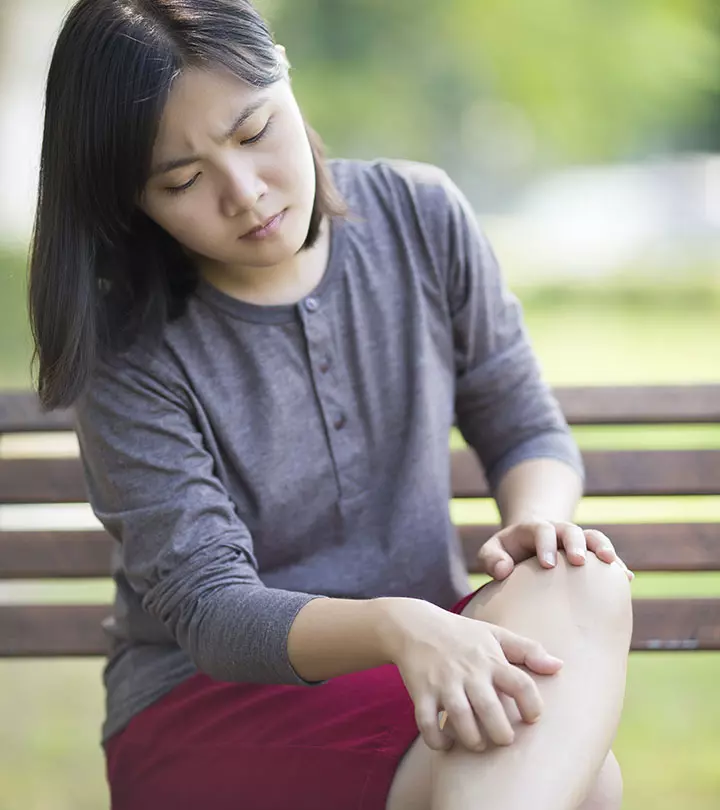
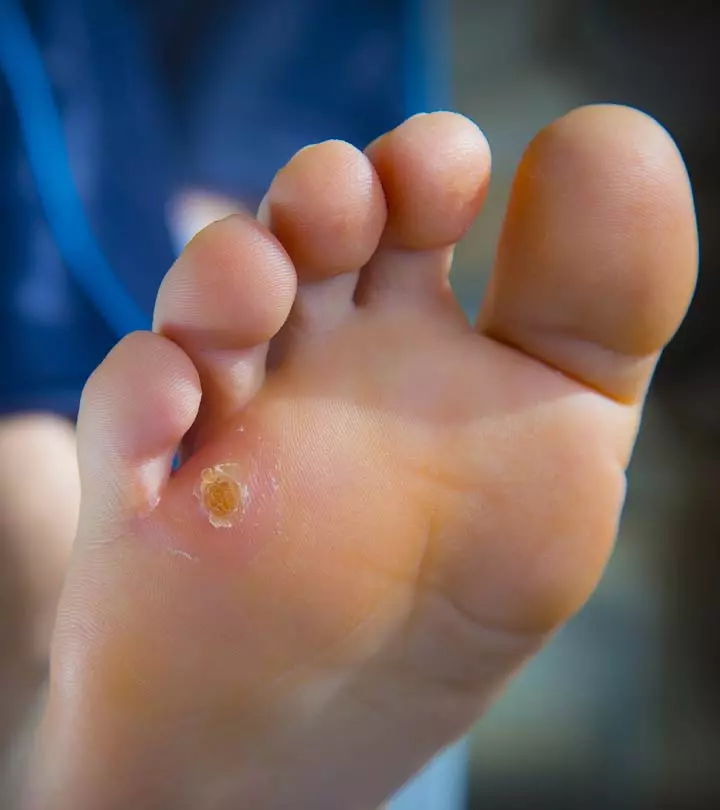
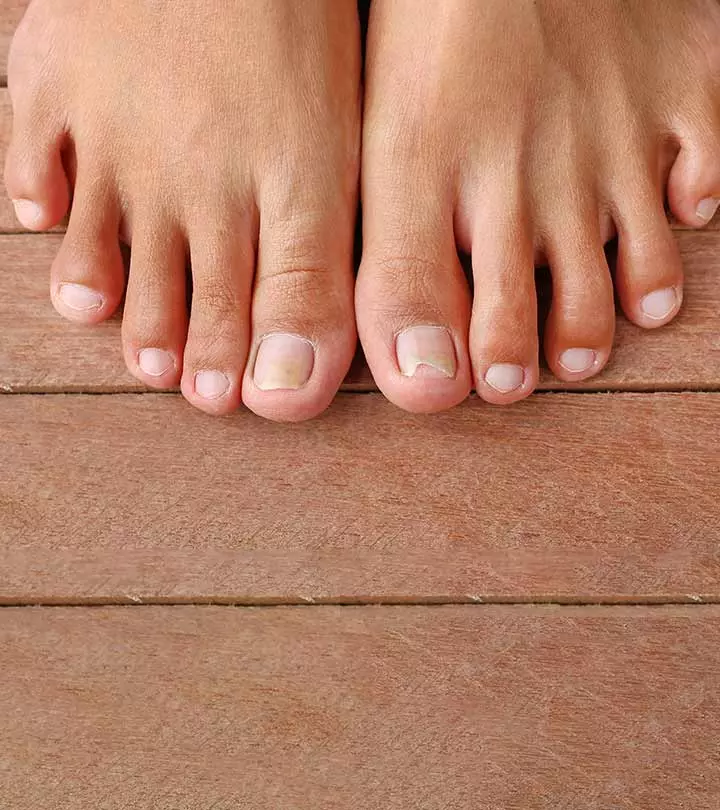
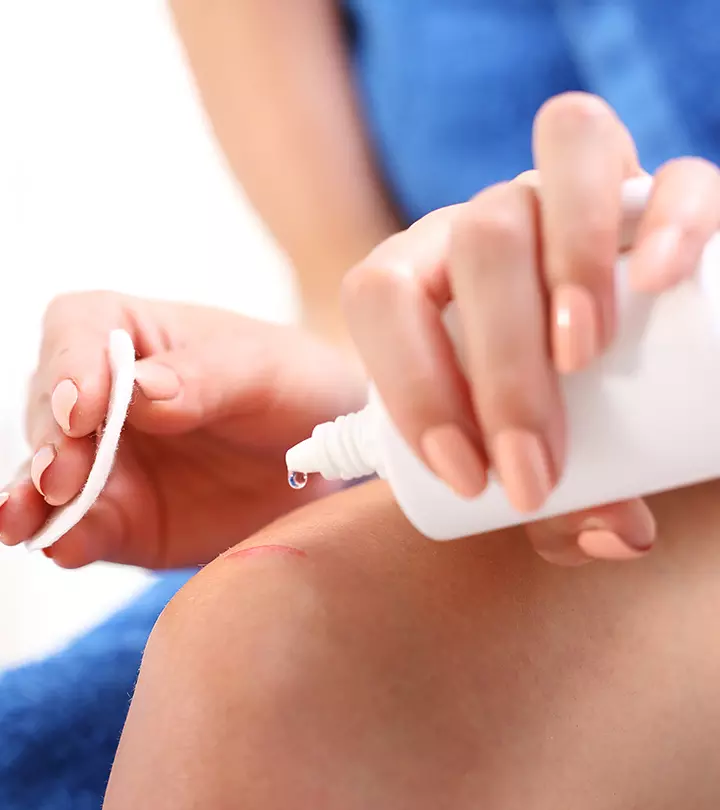
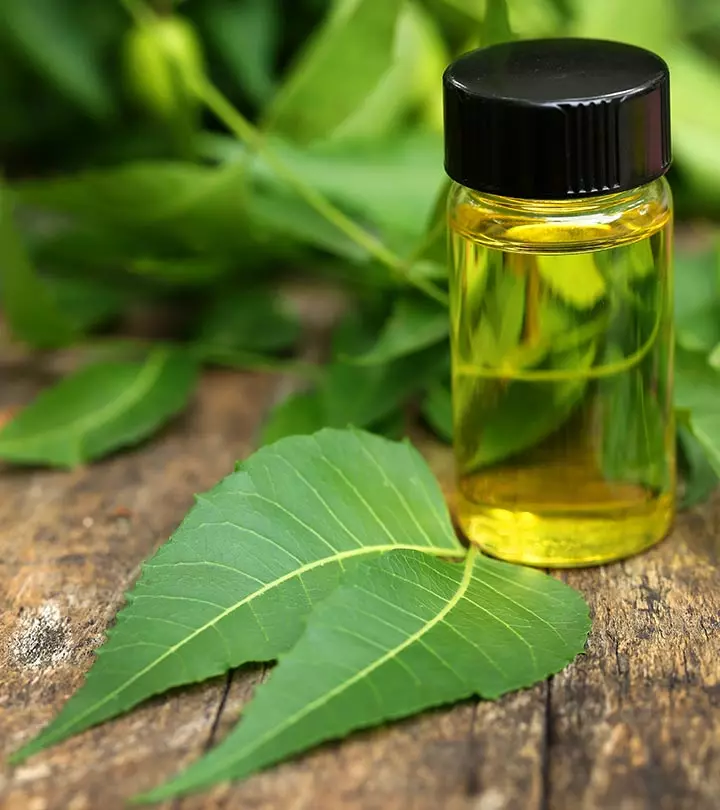
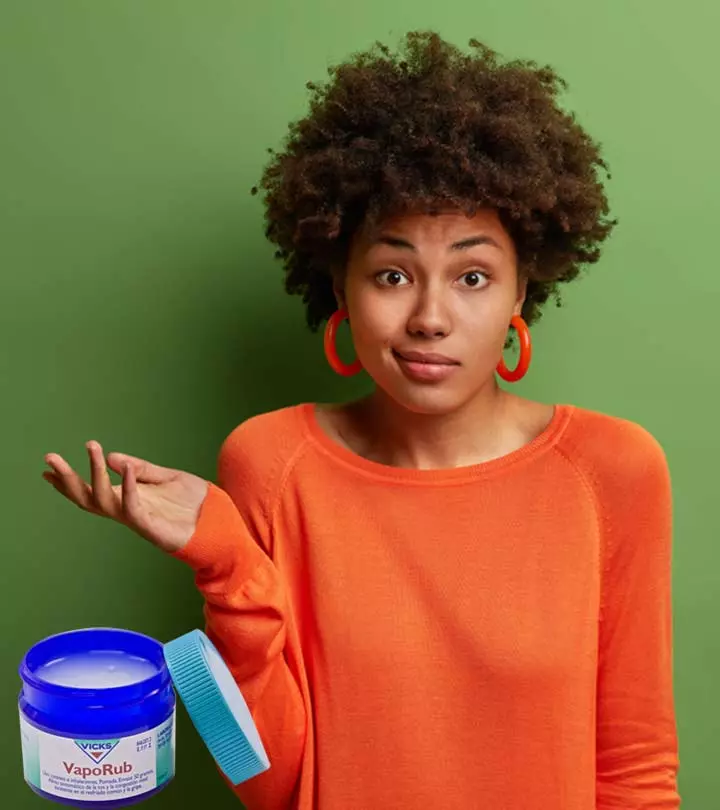
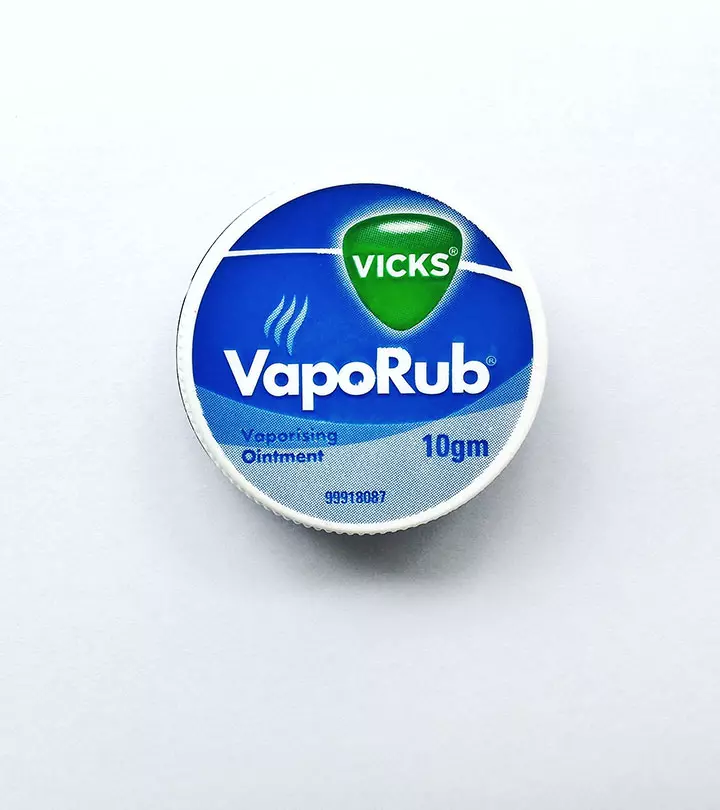
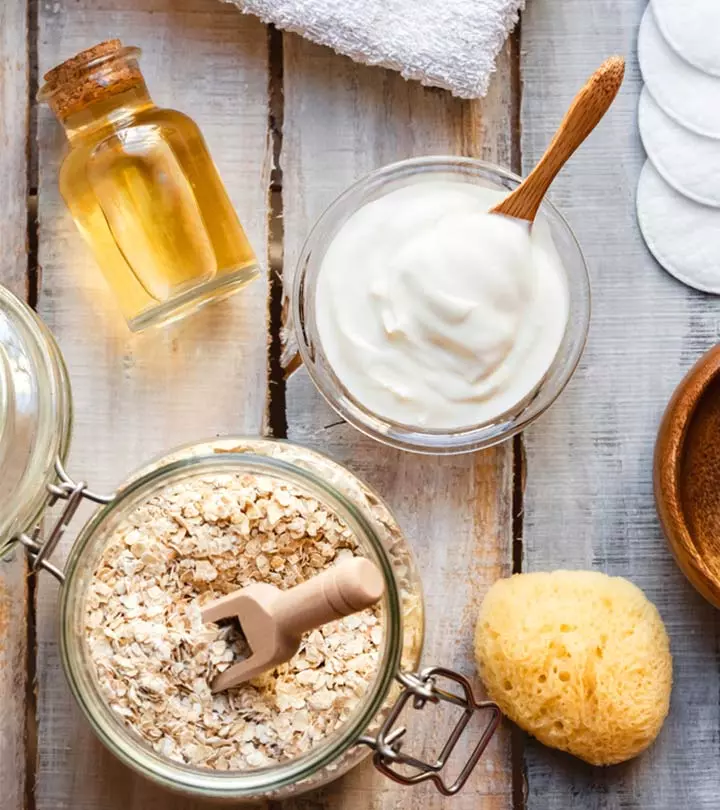
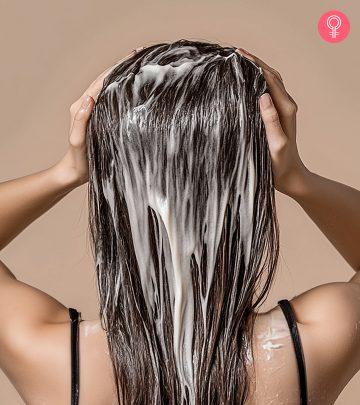



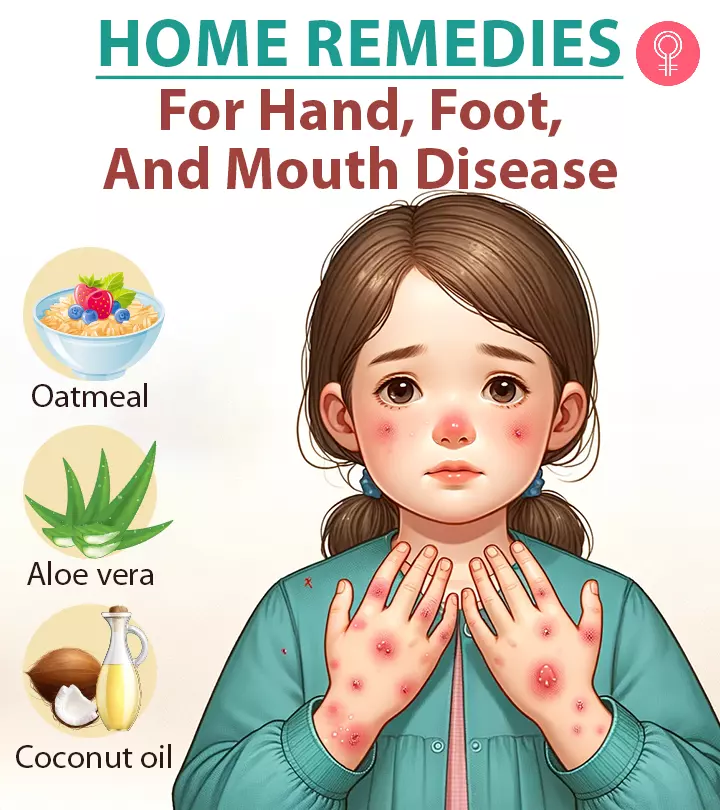
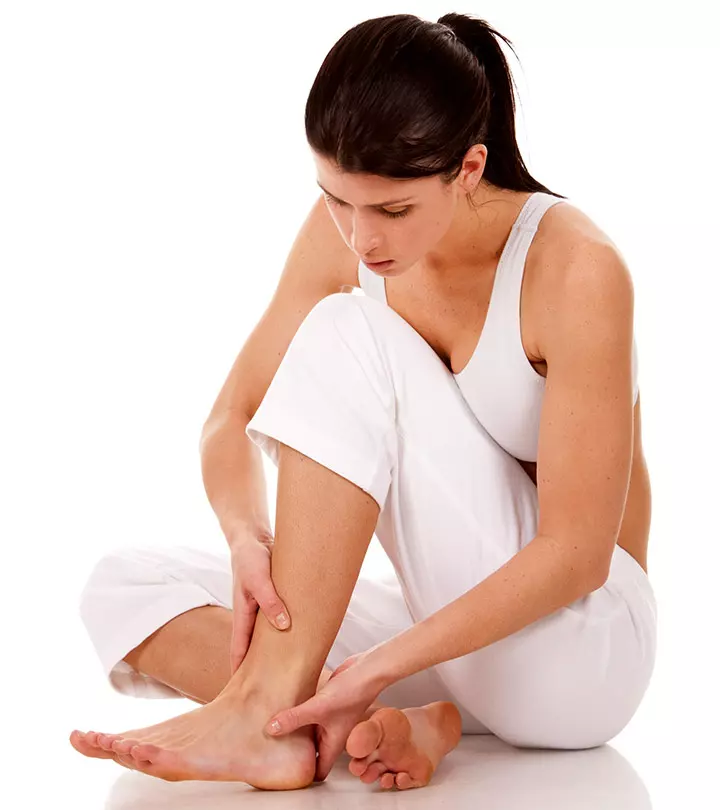
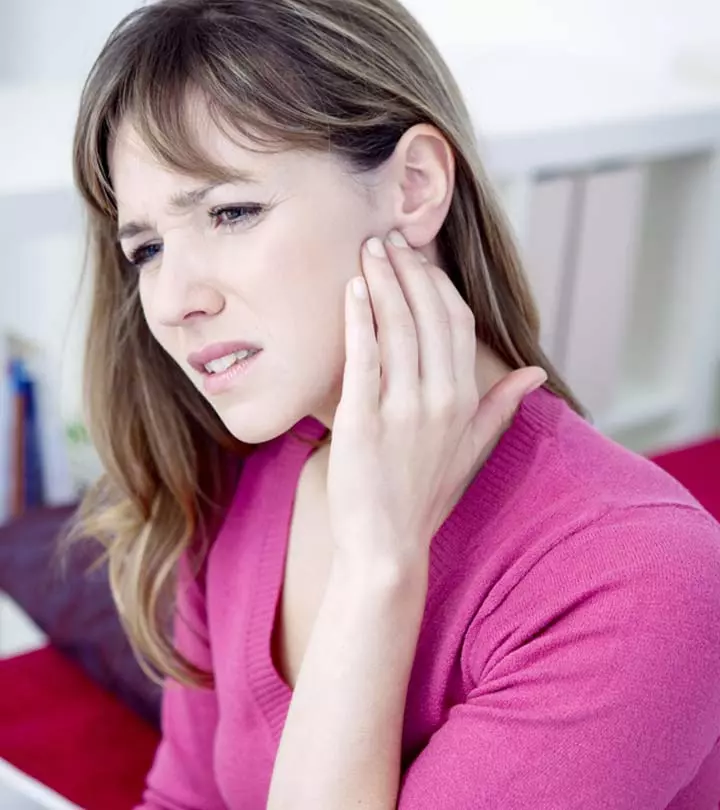


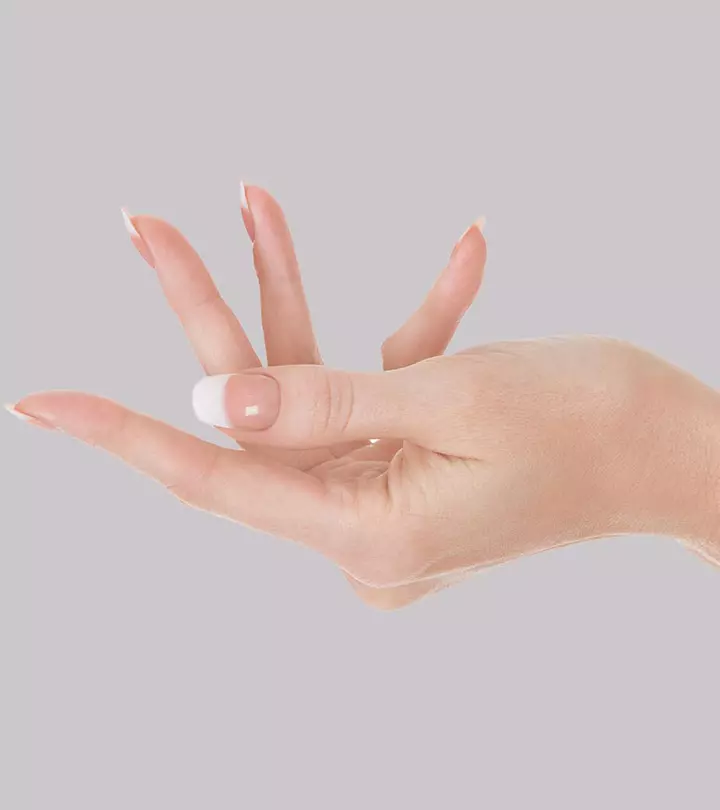
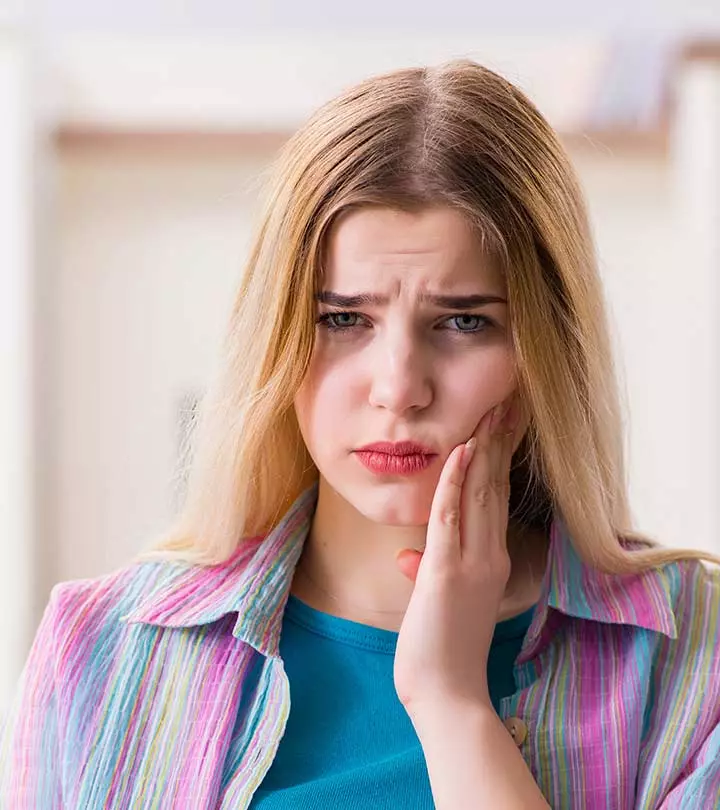
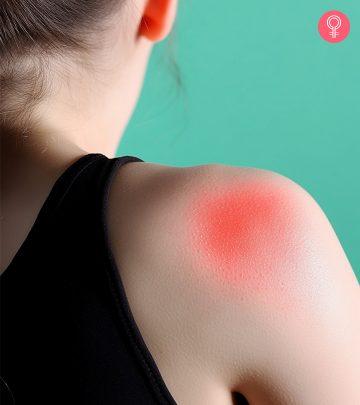
Community Experiences
Join the conversation and become a part of our empowering community! Share your stories, experiences, and insights to connect with other beauty, lifestyle, and health enthusiasts.